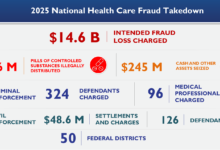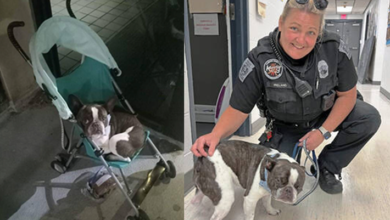Here’s How to Cope with Patient Deaths

While uncomfortable to face, exposure to patient suffering and death in the field of nursing is inevitable. With that said, most individuals who choose a career in nursing are well aware that they will witness patients in pain and loss of life. Moreover, dealing with sick and dying patients can be more frequent in certain nursing specialties, such as hospice nursing. As a result of being exposed to death and traumatic patient scenarios, some nurses may experience anxiety and depression. On the other hand, nurses can and do learn effective coping mechanisms to help them through the grieving process after losing patients.
If you are currently working as a nurse and have experienced grief or felt anxious after the death of a patient, you are not alone. Below are some ways other nurses are dealing with patient loss and grief within the healthcare system and how you can cope as well.
Recognizing Death for What It Is

For many, death can be a taboo topic. In other words, people are less inclined to speak freely about death in a positive light. However, death is a natural process that nurses will encounter time and again. While it never gets easy, acknowledging that all beings perish, especially if a patient’s death is due to natural causes (i.e., old age), could help alleviate anxiety for nurses who deal with death daily. In fact, some hospice nurses explain when a patient’s life has naturally come to an end, a nurse can find joy in the grieving process by celebrating their patient’s existence. Furthermore, nurses who have created bonds with their patients can ease in and out of the stages of grief fairly quickly by honoring the impact their patients had on them and accepting that death is a chance for a patient to finally rest. In the end (quite literally), acceptance and recognition of life cycles are some of the most effective ways for a nurse to deal with death and dying in the workplace.
Stay Connected with Other Nurses
Whether you are a nurse who frequently deals with end-of-life patient care or are in a nursing specialty that less often comes into contact with dying patients, staying connected with other nursing colleagues is essential. This connection means seeking out support or a shoulder to lean on when the death of a patient weighs heavily on your mind. In fact, having nurse friends to chat with during challenging and traumatic patient scenarios can help lessen feelings of anxiety and help cope with stress and burnout. Moreover, building and maintaining relationships at work can lighten the mood, especially when caring for sick patients. And while it may seem untimely to use humor when a patient is ill, laughing and deflection of emotions can be a short-term coping mechanism when dealing with a distressing patient outcome. Additionally, if the situation is appropriate, you can use humor to bring some cheer to your patient. When all is said and done, finding a few close nurse friends who will understand when you are feeling anxious can make navigating challenging end-of-life patient scenarios much more manageable.
Talk to a Therapist

Coming face to face with a dying patient once can stir up complex emotions. Seeing sick patients and witnessing death over and over again can lead to empathy fatigue as well as dissociation. Subsequently, there can be significant mental health consequences for nurses who are exposed to death repeatedly, such as feelings of helplessness and depression. Therefore, if you are a nurse and are beginning to experience intense feelings of grief and are unable to cope after a patient death, it may be time to talk to a therapist. Similarly, you can prepare yourself for dealing with the death of patients by building a relationship with a therapist before starting your nursing career. Because when death feels too overwhelming to face anymore, it’s okay to reach out for professional support.
Take a Breath—or a Break
Remember, you’re a nurse, not a person made of steel (although sometimes you probably wish you were). However, the reality is that you are still human and will have times when you are emotionally triggered by death. So, when nursing gets tough, you are entitled to a break. Excusing yourself while on a nursing shift for big deep breaths, crying, or a burst of anger are all warranted after witnessing the death of a patient. In other words, allow yourself to take a break if you need to release some emotions.
In the long run, learning and practicing grief coping mechanisms can help you remain mentally stable and well-equipped for handling multiple losses of life while on shift. Oh, and bear in mind, it’s okay to not be okay—always reach out if you need to.
What have been your coping mechanisms for dealing with death as a nurse? Leave a comment below.
Find PRN Jobs Here
Join Our Community






